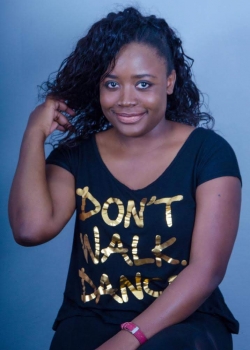
How did the idea of making a PSA on COVID-19 and fake news come about?
The call by the ‘Pause Before Sharing’ was to create a PSA about fake news. I made COVID-19 the theme of my PSA because it was a timely issue to address. I thought I might as well kill two birds with one stone – sensitive people about COVID-19 mis-information, as well as remind them about set protocols and safety measures.
Was fake news something you, or someone close to you, have experienced before?
It is something that each of us have experienced, or have fallen victim to. Especially in these COVID-19 times, we are bombarded daily with conspiracy theories and different notions of the causes and remedies of the virus. Even outside of the pandemic, we’ve all received a death hoax or news that was less than accurate.
What would you consider the most harmful misinformation you have come across?
I think the most recent would have to be the allegations about COVID-19 being deliberately made in a lab, and masks being used to spy on people. The worst part is there are people who really believe them and so are not taking the necessary precautions. This puts everybody else in danger.
To draw people’s attention in your PSA, you chose to tell a very ordinary yet insightful story. Can you tell us more about it?
The story is of a little girl whose aunt sends a text message alleging that COVID-19 is gone. As the girl makes her way to school, she runs into several people who interact with her aunt’s message. Because of the message, people have stopped wearing their masks and stopped taking safety measures and are a threat to everybody else. In the end, the girl gets to school where she urges people to be wary of the information they share.

The story contrasts innocence with carelessness. Why?
I wanted to remind people that the safety of our children really is in our hands. Often as adults, we make decisions that we know we can recover from without necessarily thinking about what it means for younger people. The survival of the next generation depends on what the current one does.
There are many ways the story could have gone, but I wanted to stress a specific message. This was around the same time that schools in Zimbabwe were opening for the first time since the pandemic. I wanted people to remember that the safety of children in schools ultimately depends on our behavior as adults.
Was it difficult to find people to act in it? Were they paid or did they agree that it was for a good cause?
It wasn’t all that hard to find people. Because we were going for a specific look and feel, we handpicked the performers that we wanted to work with from an existing database. We did, however, have an open call for our lead character – the little girl. We wanted a little girl who carried the innocence of childhood. And we found her in our little firecracker, 10-year old Haighley Tanyanyiwa.
You filmed the PSA in Bulawayo in Zimbabwe. Was the setting important in sharing the message?
The selection of locations was very deliberate. We wanted to go for landmarks that the people of Bulawayo are familiar with. So, we went with the famous Jacaranda trees in the suburbs and the City Council’s Revenue Hall to remind people that this message was made for them.
Would watching children acting in a short movie on such a serious issue have any impact on the young people in your community?
I hope it helps to remind people to be more responsible online. The youth are among the greatest users of the internet. If they took time to be more considerate about what they shared online, there would be a significant decrease in the amount of fake news and misinformation spreading around. I was going for a very heartfelt tone and I hope it tugs at somebody’s heartstrings. But more than that, I hope it helps people think about their actions.



